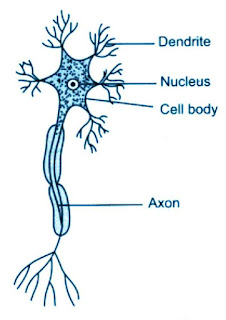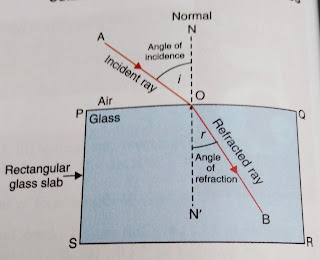Chemical effects of Electric Current : Class 8
1. define good conductor of electricity? Give example.
Answer: the materials which allow electric current to pass through them easily are called good conductors of electricity or simply conductors of electricity.
Example: generally metals are good conductor of electricity such as copper aluminium etc.
2. define bad contactor of electricity. Give example.
Answer: the materials which do not allow electric current to pass through them easily are called bad conductor of electricity.
Example: the materials such as rubber plastic and wood are example of bad conductor of electricity.
3. Name some liquids which can conduct electricity.
Answer: solution of acid, solution of base, salt in water.
A solution of of sulphuric acid, hydrochloric acid, aur any other acid in water conducts electricity.
A solution of sodium hydroxide, potassium Hydroxide or any other soluble base in water conduct electricity.
A solution of copper sulphate, common salt or any other salt in water also conducts electricity.
4. vinegar and lemon juice conduct electricity. ......why?
Answer: vinegar and lemon juice conduct electricity because they are the solution of acid. ( note: this solution contain ions which helps to conduct electricity)
5. On basis of electricity conduction ,differentiate solid and liquid
Answer: i) in solids , electricity is carried by electrons whereas in liquids , electricity is carried by ions
ii)when electricity is passed through a solid, then no chemical change takes place but when electricity is passed through a liquid , then a chemical change takes place.
6. In solids , which carry electricity?
Answer: in solids, electrons are helps to carry electricity.
7. In liquids , which carry electricity?
Answer: in liquids ions helps to carry electricity.
8. Which helps to carry electricity in copper and copper sulphate solution?
Answer: in copper, electrons carry electricity and in copper sulphate solution, ons carry electricity.
9. What are contacting liquids?
Answer: the liquids which conduct electricity are called conducting liquids.
10. What is 'chemical effects of electric currentcurrent'?
Answer: the chemical changes which take place in conducting liquids on passing electric current through them are called chemical effects of electric current.
11. Which type of changes (that is physical or chemical) occur when current passed through Copper and copper sulphate solution?
Answer: when current passed through copper here physical change occur.
When current passed through copper sulphate solution here chemical change occur.
12. Define electrolyte. Give example.
Answer: a liquid (or solution of a substance) which can conduct electricity is called an electrolyte.
Example: the solutions of acids ,bases and salts in water are electrolytes.
13. Write the name of different types of electrolytes.
Answer: strong electrolyte and weak electrolyte.
14. Define strong electrolyte. give example
Answer: a strong electrolyte is a liquid (or solution ) which conducts electricity very well.
Example: sulphuric acid solution, hydrochloric acid solution , nitric acid solution, sodium hydroxide solution, potassium hydroxide solution ,common salt solution ,copper sulphate solution , silver nitrate solution.
15. Define weak electrolyte. give example.
Answer: a weak electrolyte is a liquid( or solution ) which conducts electricity to a lesser extent.
Example: vinegar , lemon juice , carbonic acid solution , ammonium chloride solution, ordinary water.
16. Why is strong electrolyte a good conductor of electricity?
Answer: A strong electrolyte is a very good conductor of electricity because it contains a lot of ions in it.
17. Why is weak electrolyte a bad conductor of electricity?
Answer: a weak electrolyte is a weak conductor of electricity because it contains a lesser number of ions.
18. What is electrode?
Answer: a solid electrical conductor through which an electric current enters or leaves something like a dry cell or an electric cell is called an electrode.
19. Write the name of different types of electrode.
Answer: electrons are of two types: anode and cathode.
20. Define cathode.
Answer: the negatively charged electrode is called cathode.
21. Define anode.
Answer: the positively charged electrode is called anode.
22. Define electrolytic cell.
Answer: an arrangement having two electrodes kept in a conducting liquid (or electrolyte) in a vessel is called an electrolytic cell.
23. Cathode are.................charged and anode are..............charged.
Answer: cathode are negatively charged and a note are positively charged
24. Write the name of by which electrode are made.
Answer: graphite, Platinum.

